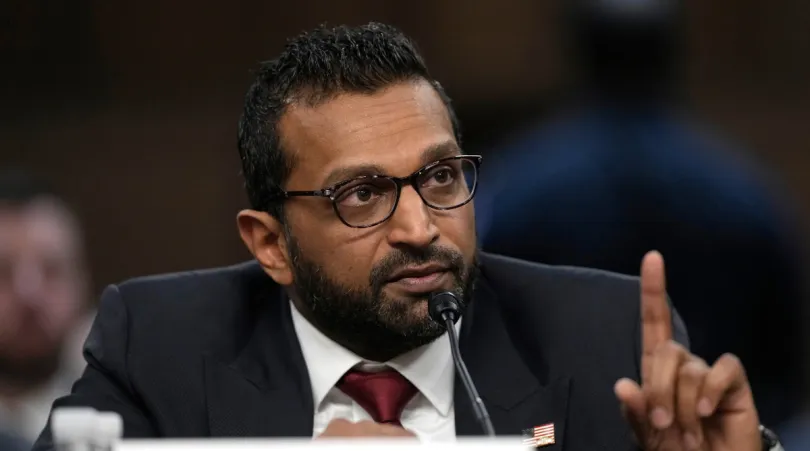In a landmark decision, the U.S. Senate has confirmed Kash Patel as the new Director of the Federal Bureau of Investigation (FBI) with a narrow 51-49 vote, following weeks of heated debate and political opposition. The confirmation marks a significant shift in leadership at the nation's top law enforcement agency and signals a potential transformation in its operational direction under Patel's leadership.
Capito Supports Patel’s Confirmation
Among the votes in favor of Patel was Senator Shelley Moore Capito (R-WV), who has expressed confidence in Patel’s ability to "restore integrity and efficiency" within the FBI. In a statement released after the vote, Capito highlighted the need for strong, transparent leadership within the agency and emphasized Patel’s commitment to holding the FBI accountable.
“I believe Kash Patel has the experience and determination necessary to bring much-needed reforms to the FBI. It is critical that we ensure the agency operates in a manner that prioritizes national security and upholds the trust of the American people,” Capito stated.
Patel’s Path to FBI Leadership
A former Trump administration official, Kash Patel has been a controversial figure due to his close association with former President Donald Trump and his vocal criticism of previous FBI leadership. His confirmation came following the resignation of Christopher Wray, who had served as FBI Director since 2017.
Patel, who previously worked in the Department of Defense and the National Security Council, has been outspoken about his plans to implement sweeping reforms within the FBI. His policy proposals include:
- Restructuring internal operations to eliminate what he has referred to as “politicized investigations”.
- Increasing transparency regarding FBI surveillance programs.
- Reforming the handling of classified documents and leaks to the media.
- Holding officials accountable for perceived misconduct in past investigations.
Divisive Confirmation Process
The confirmation process for Patel was deeply partisan, with all Senate Democrats opposing his nomination. Only two Republicans, Susan Collins (Maine) and Lisa Murkowski (Alaska), voted against him, citing concerns about his lack of experience in law enforcement and his highly politicized approach to FBI oversight.
Senator Dick Durbin (D-IL), Chairman of the Senate Judiciary Committee, was one of the most vocal critics, warning that Patel’s “partisan loyalties” could undermine the agency’s independence.
“We need an FBI Director who will uphold the rule of law—not someone who has spent years attacking the very institution they are now tasked with leading,” Durbin said.
Despite the pushback, Patel’s nomination sailed through with the support of the Republican-controlled Senate, backed by a strong endorsement from former President Trump.
Potential Impact on the FBI
Patel’s confirmation could lead to major internal changes within the FBI, with some analysts predicting that his tenure will be marked by high-profile personnel reshuffles and shifts in investigative priorities. Many in the intelligence community are also watching closely to see how Patel will handle ongoing investigations involving political figures—including Trump himself.
With upcoming elections and a politically charged atmosphere, Patel’s leadership is expected to face intense scrutinyfrom both Congress and the public. While supporters argue that he will help restore credibility and efficiency to the FBI, critics fear his tenure may be marked by political purges and retaliatory investigations.
What’s Next?
Now officially confirmed, Patel is set to take over FBI leadership immediately, with his first major test being the agency’s handling of high-profile cases involving election security, counterterrorism, and domestic extremism.
Patel has promised to prioritize national security concerns while ensuring that the FBI operates with transparency and accountability. However, with deep political divisions in Washington, his ability to navigate the agency through a challenging and polarized era remains to be seen.
One thing is certain: his appointment marks a turning point for the FBI and will undoubtedly shape the agency’s role in U.S. law enforcement and intelligence for years to come.

